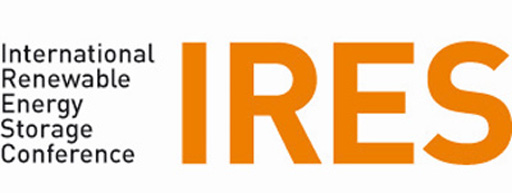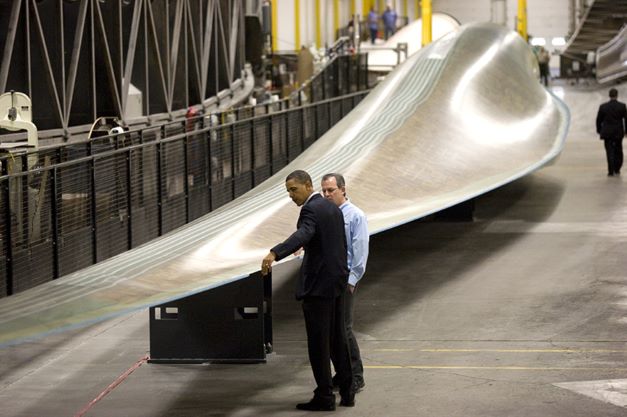Aktuelles
Energy storage for renewable electricity integration workshop
 Sahara Wind at the IPHE Renewable Hydrogen Workshop “A competitive Energy Storage Medium for large scale integration of renewable electricity” in Seville Spain | 15-16 November 2012.
Sahara Wind at the IPHE Renewable Hydrogen Workshop “A competitive Energy Storage Medium for large scale integration of renewable electricity” in Seville Spain | 15-16 November 2012.
Sahara Winds regional capacity building activities amongsts which Africa's First Wind Hydrogen Energy System as part of Al Akhawayn University’s Green Campus presented by the Pure Energy Centre.
Sahara Wind presented at IRES2012 Energy Storage Conference
 The Sahara Wind project presented at the 7th International Renewable Energy Storage Conference and Exhibition bcc Berlin Congress Center, November 12-14, 2012
The Sahara Wind project presented at the 7th International Renewable Energy Storage Conference and Exhibition bcc Berlin Congress Center, November 12-14, 2012
IRES has developed into a central platform for sharing knowledge and exchanging ideas by professionals from the energy storage world on one of the key issues of future energy supply. EUROSOLAR and the World Council for Renewable Energy (WCRE) continues the IRES series in 2012 in cooperation with EnergyAgency NRW. IRES 2012 attracted attendance from more than 40 countries with 600 attendees, repeating the success of previous years.
The conference proceedings are online since December 10, 2012. This information is accessible for all IRES 2012 attendees.
A new EU energy policy for the 21st century
 Sahara Wind at the FoE Energy Summit "A new EU energy policy for the 21st century” on November 6th 2012, in Brussels, Belgium.
Sahara Wind at the FoE Energy Summit "A new EU energy policy for the 21st century” on November 6th 2012, in Brussels, Belgium.
Opening the Energy Summit 2012, Giles Merritt, Friends of Europe’s Secretary General mentioned that although feasible, the EU’s 20/20/20 targets rely on conjectural factors. Beyond his remarks, the European Commission’s Energy Roadmap seeks to reduce emissions by 85% by 2050, through a big range of possibilities, with rates of renewable energy ranging from 49% to 86% of total electricity production. Europe’s energy system is subject to a significant, structural transformation due to the transition to a green, low-carbon, resource efficient economy. By 2025, one million jobs will be created in renewables and energy efficiency alone.
Africa’s 1st Wind Hydrogen System Launched
Africa’s First Wind-Hydrogen System Launched
The First African initiative to make hydrogen from water using green energy has been successfully installed in Morocco. Unst, Shetland, United Kingdom, October 2, 2012 - (PressReleasePoint) -
The Pure Energy® Centre, the UK pure® fuel, renewable energy and energy storage company in collaboration with Sahara Wind Inc. and Al Akhawayn University in Morocco announce the completion of Africa’s First Wind Hydrogen System. The hydrogen system has been installed to enable the storage of excess wind energy. The installed system demonstrates that the intermittency of the wind and excess production can be resolved.

Rabat Energy Forum
Sahara Wind at the Rabat Energy Forum
The Ministry of Energy, Mines, Water and Environment of the Kingdom of Morocco and the Energy Charter Secretariat held an international conference in Rabat on 20-21 September 2012 on the topic "Creating a Competitive Integrated Regional Energy Market in the MENA Region: the Contribution of the Energy Charter ".
The Middle East and North Africa (MENA) region accounts for about 57% of the world's proven oil reserves and 41% of proven natural gas reserves, according to the World Bank. At the same time, the region has enormous solar energy potential. Population growth, rapid urbanisation and economic development are putting pressure on the existing infrastructure. Over the next 30 years, the total investment needs of the MENA region energy sector are estimated at over US$ 30 billion a year, or about 3% of the region's total projected GDP.
Morocco is the largest energy importer in Northern Africa. It is one of the Maghreb electricity interconnection countries, it is also a transit country for Algerian gas exports to Spain and an active participant in the Mediterranean Solar Plan. The country's legislation framework is very attractive for foreign direct investments. Its institutional system already includes the Agency for Solar Energy (MASEN), the Development Agency for Renewable Energy and Energy Efficiency. An independent regulator for natural gas and electricity is currently being established.
NREL organizes a seminar for the Sahara Wind project
 The Sahara Wind Project presented at the U.S. National Renewable Energy Laboratory headquarters during a dedicated Seminar in Golden, Colorado on July 5th, 2012.
The Sahara Wind Project presented at the U.S. National Renewable Energy Laboratory headquarters during a dedicated Seminar in Golden, Colorado on July 5th, 2012.
During this event Khalid Benhamou Managing Director of Sahara Wind presented regional capacity building activities carried out with institutions of Morocco and Mauritania to facilitate the access to wind technologies. These include amongst others a regional wind monitoring network established with the help of the region’s telecom operators as well as Africa’s first wind-hydrogen systems delivered to universities in both countries.
US President Obama's job creation in local Wind Turbine manufacturing
 While visiting the TPI Composites plant in Newton, Iowa on May 24th 2012, President Obama presented the efforts made by his administration to support green manufacturing jobs. A few months before, on April 6th 2011, President Obama addressed the employees of a GAMESA Plant -a Spanish wind turbine manufacturer- established in Fair Hills, Pennsylvania. During an unprecedented Question & Answer session held with the workers of the plant, President Obama highlighted the importance of creating local manufacturing capacities in the wind energy sector. These could spur green technology developments and exports to world markets and regions which currently lack the size and/or capacities for integrating a green energy industry locally. The United States being one of the largest single energy consuming markets in the world means that a green energy economy stands good chances of thriving. The importance of establishing domestic manufacturing capacities to support the local integration and phased deployment of the Sahara Wind Project is a key element to be taken into consideration for the region. Collaboration on broader capacity building programs and policies aimed at establishing a local wind turbine manufacturing industry represents one of our main objectives.
While visiting the TPI Composites plant in Newton, Iowa on May 24th 2012, President Obama presented the efforts made by his administration to support green manufacturing jobs. A few months before, on April 6th 2011, President Obama addressed the employees of a GAMESA Plant -a Spanish wind turbine manufacturer- established in Fair Hills, Pennsylvania. During an unprecedented Question & Answer session held with the workers of the plant, President Obama highlighted the importance of creating local manufacturing capacities in the wind energy sector. These could spur green technology developments and exports to world markets and regions which currently lack the size and/or capacities for integrating a green energy industry locally. The United States being one of the largest single energy consuming markets in the world means that a green energy economy stands good chances of thriving. The importance of establishing domestic manufacturing capacities to support the local integration and phased deployment of the Sahara Wind Project is a key element to be taken into consideration for the region. Collaboration on broader capacity building programs and policies aimed at establishing a local wind turbine manufacturing industry represents one of our main objectives.
The video and full transcript of the President’s speech of April 6th 2011, as well as the Video of May 24th 2012 are no longer accessible.
Middle-East and North Africa Renewable Energy Conference
Sahara Wind at the 5th Middle East and North Africa Renewable Energy Conference (MENAREC 5)
The "Middle-East and North Africa Renewable Energy Conference» (MENAREC) was organized by a country of the MENA region in partnership with the German Federal Ministry for Environment, Nature Protection and Nuclear Safety (BMU) and the German Agency for International Cooperation (GIZ) since 2004.
Production of Drinking Water in Arid Regions using Renewable Energies
 The Sahara Wind project presented at the 5th IPWE Conference, January 4-7, 2012 in Marrakech, Morocco
The Sahara Wind project presented at the 5th IPWE Conference, January 4-7, 2012 in Marrakech, Morocco
The 5th International Perspective on Water Resources & the Environment Conference (IPWE 2012) is organized by the Environmental & Water Resources Institute (EWRI) of the American Society of Civil Engineers (ASCE). The event covers a range of issues from Water Supply, Sustainability, and Sanitation to Regional Case Studies (Specific to Africa and Arab Regions). During the event, regional capacity building activities of the Sahara Wind project in Morocco and Mauritania were presented under “Production of Drinking Water in Arid Regions using Renewable Energies”.
Sahara Wind project's transition into Hydrogen economy (IPHE report)
IPHE's Renewable Hydrogen Report identifies the Sahara Wind project as likely to facilitate the transition into a cleaner more sustainable hydrogen economy.
The hydrogen production from large renewable energy sources of the Sahara Wind Project in support of local industries was presented on December 1st 2009, during the Joint 12th International Partnership for a Hydrogen Economy (IPHE) Implementation and Liaison (ILC) & Steering Committee (SC) in Washington, D.C., USA. Through a joint collaboration made available to Mediterranean Dialogue Countries by the North Atlantic Treaty Organization, possibilities of accessing and storing renewable energies in weaker electricity grids have been established. The initial testing and deployment of renewable hydrogen applications within academic institutions of Morocco and Mauritania in partnership with industries of the region are demonstrating the importance of local renewable energy integration.
The Sahara Wind Project development and capacity building activities conducted within Morocco and Mauritania’s universities has been facilitated by member countries of the IPHE.
Maghreb/Middle East Renewables 2011

The Sahara Wind project presented under the conference's theme: Fuelling the Renewable Energy Revolution for a Sustainable Energy Future
Hosted under the auspices of the Ministry of Energy, Mines, Water & Environment of Morocco, the 3rd Annual Maghreb/Middle East Renewable Energy Conference 2011 was held on 4-5 July 2011 in Rabat, Morocco. Building on the success of the previous events held in Cairo in 2009 and Marrakech in 2010, this event provided industry and market stakeholders a platform for continued dialogue.
This event brought together regional governments, project financiers, technology providers, investors and other relevant industry stakeholders. The event provided an opportunity to clarify policy issues, financing regulations and PPP frameworks in place to support projects on wind & solar energy.
Renewable potentials and prospects in the Maghreb/Middle East regions are exceptional taking into consideration the average wind speed and solar potentials which rank among the highest in the world. This represents a factor which will ensure that renewable energy will experience considerable growth in order to establish itself as a viable source for power generation in the broader MENA region.
Wind Power Saves Water !
 March 22, 2011 - World Water Day: The Global Wind Energy Council calls on policy makers to take urgent decisions for the world’s power generation infrastructure for decades to come.
March 22, 2011 - World Water Day: The Global Wind Energy Council calls on policy makers to take urgent decisions for the world’s power generation infrastructure for decades to come.
“As highlighted by the UN today, water scarcity is now a pressing issue in many parts of the world, and this will be exacerbated by climate change,” said Steve Sawyer, GWEC’s Secretary General. “Wind power can make a considerable contribution to conserving the world’s valuable water resources. Unlike most other power sources, which consume huge amounts of water that could be used much more productively for human consumption and agriculture, wind power generation does not use any water.” Some 40% of the world’s population already live in water-stressed areas, and population growth and industrialisation will put further pressure on water availability. Given the high levels of water use in conventional power generation, increasing power demand will aggravate the situation. As a result, global water demand is expected to outstrip supply by 40% by 2030 under a business-as-usual approach.






